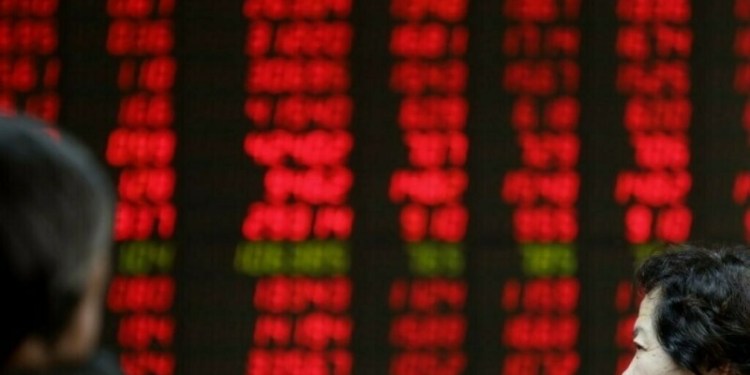BEIJING (Reuters) – A policy debate in China on how best to address slowing growth deepened on Friday, as analysts urged authorities to boost fiscal stimulus amid rising risks to the world’s second-biggest economy from a bitter trade conflict with the United States.
An article in Financial News, which is run by the People’s Bank of China (PBOC), quoted analysts as calling for an adjustment to fiscal policy and some loosening of financial regulations, saying monetary policy would not be able to resolve corporate funding challenges on its own.
The article cites CITIC Securities fixed income analyst Ming Ming as saying that maximizing effectiveness of monetary policy requires active coordination with fiscal and regulatory policies.
“There is still a lot of room for fiscal policy” support, and policymakers should focus on the “strength and rhythm” of regulations, “fully considering the impact on market expectations”, Ming said.
As China’s economic growth slows, it has sparked a debate among government researchers on whether fiscal policy should help to soften the impact of a trade war with the United States. Both countries have already slapped tit-for-tat tariffs on each other’s goods and with no signs of easing in tensions Beijing has already started to loosen monetary conditions.
Overall credit growth has slowed in China this year, with off-balance sheet lending, or shadow banking, contracting amid a crackdown on financial risks.
But Friday’s article said the latest data showed bank lending was not making up for the gap in credit due to shrinking off-balance sheet lending.
POLICY PRIORITIES SHIFT
The economy is starting to feel the pinch from a multi-year crackdown on riskier lending and debt, problems which were fueled in part by a massive stimulus program to support the economy during the global financial crisis.
The regulatory tightening has driven up corporate borrowing costs, prompting the PBOC to cut banks’ reserve requirement ratios (RRR) three times this year.
The central bank overseas monetary policy while the finance ministry supervises fiscal policy. It unclear whether the current debate reflects the policy stances of the two agencies.
Research firm Capital Economics said that China’s Ministry of Finance will loosen policy as pressure mounts due to a slowing economy.
“If nothing else, the recent debate suggests that officials agree on the need for policy loosening, even if they disagree about the exact form that it should take,” Capital Economics senior China economist Julian Evans-Pritchard wrote in a note.
“This highlights how far policy priorities have shifted since the start of the year, when the deleveraging campaign was still at the top of the political agenda.”
Chen Jianheng, a fixed income analyst at China International Capital Corporation, said the strength of financial regulations can be moderately adjusted, according to the article.
In the same article, Ming said the crackdown on shadow banking had lowered financial institutions risk appetite and restricted credit from flowing to the real economy.
Fusion Media or anyone involved with Fusion Media will not accept any liability for loss or damage as a result of reliance on the information including data, quotes, charts and buy/sell signals contained within this website. Please be fully informed regarding the risks and costs associated with trading the financial markets, it is one of the riskiest investment forms possible.
Source: Investing.com


























